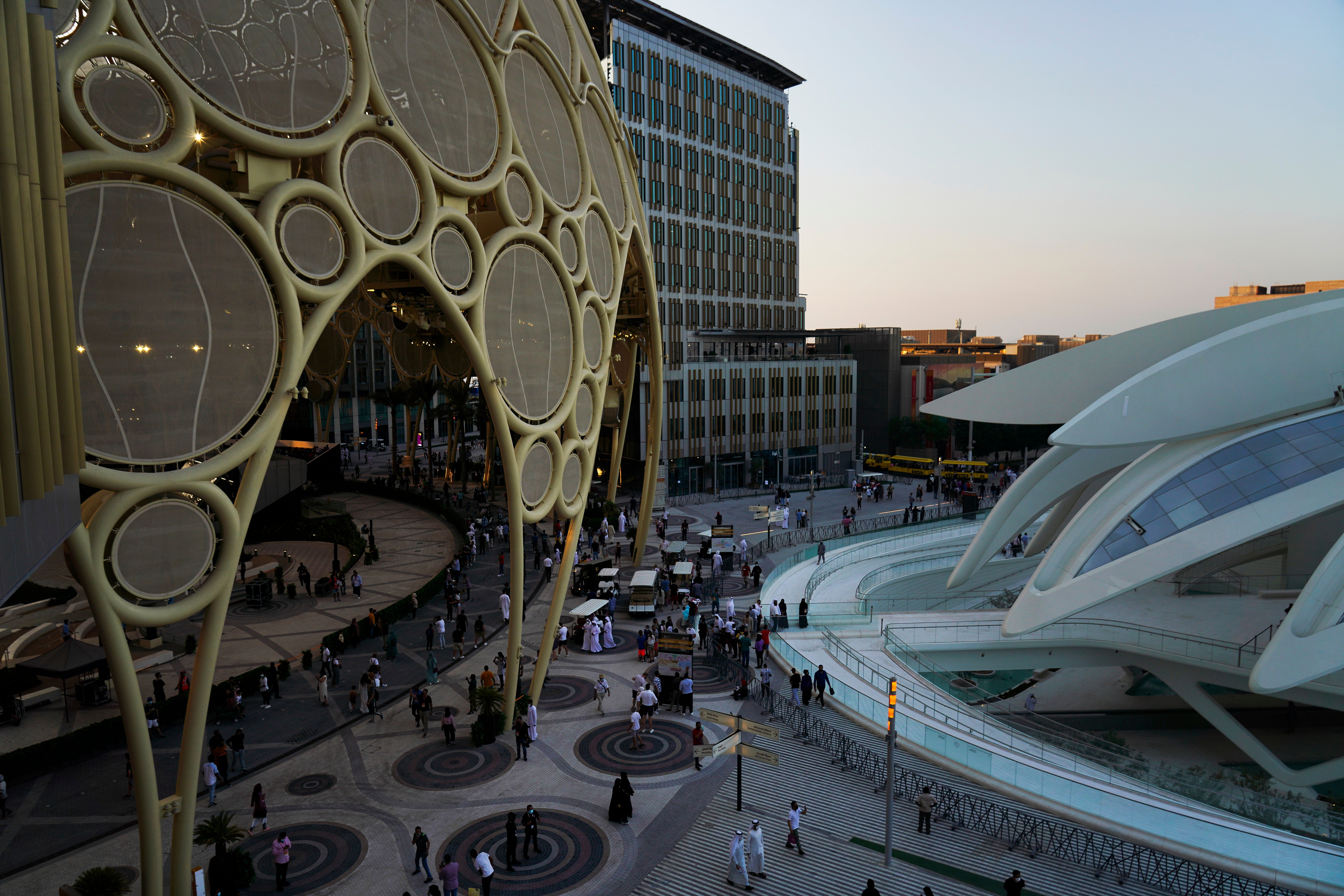It’s an illusion that women’s rights are now protected in the United Arab Emirates
Although the UAE likes to remind its critics about recent reforms, the law still leaves women vulnerable to serious abuses of their rights, with little legal recourse


Your support helps us to tell the story
From reproductive rights to climate change to Big Tech, The Independent is on the ground when the story is developing. Whether it's investigating the financials of Elon Musk's pro-Trump PAC or producing our latest documentary, 'The A Word', which shines a light on the American women fighting for reproductive rights, we know how important it is to parse out the facts from the messaging.
At such a critical moment in US history, we need reporters on the ground. Your donation allows us to keep sending journalists to speak to both sides of the story.
The Independent is trusted by Americans across the entire political spectrum. And unlike many other quality news outlets, we choose not to lock Americans out of our reporting and analysis with paywalls. We believe quality journalism should be available to everyone, paid for by those who can afford it.
Your support makes all the difference.While the United Arab Emirates’ (UAE) public relations experts are busy laundering reputations, presenting an image of Emirati tolerance and openness, evidence which came before a recent cross-party panel suggested something quite different.
Just listening to the testimony of British women who had experienced the UAE legal system gave a very different flavour of what justice is like in the Emirates. The current Dubai Expo includes a Women’s Pavilion dedicated to “a journey on women’s impact to creating a better world” – making the suggestion that the UAE is greatly improving the lot of women. Unfortunately, this is largely an illusion.
Sir Peter Bottomley MP, Debbie Abrahams MP and I produced a report this month which reveals the shocking lack of fundamental protection of women’s rights in the UAE. Although the UAE government likes to remind its critics about recent reforms, such as the removal of the legal defence for so-called “honour killings”, the law still leaves women vulnerable to serious abuses of their rights, with little legal recourse.
For example, “chastisement” in the form of physical violence by a husband on his wife remains lawful, as does marital rape. Even on a day-to-day level, freedom of expression, freedom of religion and freedom of association appear to be luxuries not afforded to women in the UAE.
For British women in the UAE, many have found themselves arrested for activity that simply wouldn’t be crimes anywhere else, such as insulting someone in a WhatsApp message. At the evidence hearing which was held in order to compile our report, we heard testimony from women such as Caitlin McNamara. Her own experience after being seriously sexually assaulted by a government official is especially striking.
She was advised to flee the country by consular officials after she had been attacked, warned that she herself could end up being prosecuted for making such an accusation. She was also advised that no lawyer would take her case for fear of receiving backlash themselves.
Her attacker faced no consequences whatsoever. Proof, if it were needed, of how fragile the protection for women really is in the UAE, especially when it comes to the interests of powerful officials.
The UAE’s desperation to bolster a falsely positive image globally means that freedom of expression, especially on social media, simply does not exist in the country. Criticism of the regime is suppressed, often brutally. Asa Hutchinson, another woman who attended our hearing, was arrested after she had merely witnessed a fight but found herself being falsely accused of wrongdoing. We heard in her testimony that “it enrages them when things hit the newspapers”.
While the UAE’s marketing departments work their magic to present the country as a modern utopia, as soon as something goes wrong, the brutal truth of the UAE’s attitude towards women’s rights quickly becomes clear.
Of course, it is not just the UAE that is to blame for not defending British women in the Emirates. Our very own Foreign Office does not appear to be sufficiently capable or prepared to help British women who find themselves in difficult positions there.
According to Caitlin, who turned to the British consular services after the trauma of her attack, “they said the right things, but … there was no proactive help”. She was merely sent the links for generic sexual assault advice websites back in the UK. And when Caitlin took her case to the Crown Prosecution Services in London, her case was dismissed because events took place outside of this jurisdiction and international law does not do very well by women, even when they are raped. It was never drafted with women in mind. This epitomises how women’s rights are susceptible to neglect globally.
To keep up to speed with all the latest opinions and comment sign up to our free weekly Voices Dispatches newsletter by clicking here
The Foreign Office recorded over 1,350 detentions of British women in the UAE from 2011 to 2016. Given the lacklustre support we heard about being offered to women, we can only imagine the scale of inaction across these many cases. I have no doubt that for many of those women, the experience of arrest in the UAE was terrifying and traumatic, yet they were expected to deal with it alone.
Our report showcases the stories of just a few women, but the evidence that we heard painted an alarming picture. In light of the many thousands of Britons visiting or living there at any one time, the Foreign, Commonwealth & Development Office needs to step up and fulfil its consular duties to British nationals. The UAE government’s own apparent reforms are simply not sufficient, and they have a long way to go before they can legitimately claim to be proponents of women’s safety, let alone prosperity, in the country.
It is uncomfortably clear that the Dubai Expo’s Women’s Pavilion is just another PR stunt. It is time for the Foreign Office to listen and respond to the thousands of women with similar tales, and urgently put the necessary pressure on the UAE to reform.
Baroness Kennedy is a barrister, broadcaster and Labour peer in the House of Lords
Join our commenting forum
Join thought-provoking conversations, follow other Independent readers and see their replies
Comments